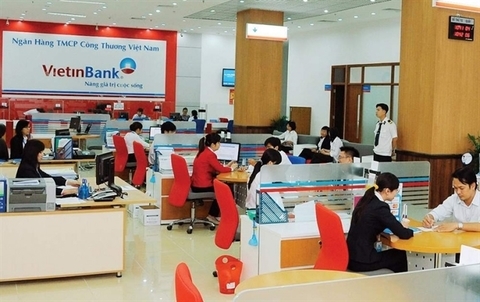 |
| According to new targets, 90 per cent of the Vietnamese population aged over 15 will have bank accounts by 2030. — Photo cafef.vn |
This instruction was included in Decision No 681/QD-TTg on implementing sustained development targets for Viet Nam until 2030 issued by the Prime Minister last week.
The target for 2020 will be 70 per cent and more than 80 per cent by 2025.
Under the decision, the Government also set out plans to increase the number of ATMs per 100,000 people to 40 by 2020 and more than 40 by 2025.
The number of commercial bank branches per 100,000 people will be 20 by 2020, and more than 20 by 2025-30.
The decision also targets the strengthening of accessibility to banking services for enterprises, especially small- and medium-sized ones. As part of the roadmap, the number of SMEs with outstanding loans at credit institutions will be 200,000 by 2020, 250,000 by 2025 and 300,000 by 2030.
While fintech is sweeping through the traditional economy in Viet Nam like everywhere else in the world, the vast majority of residents do not have bank accounts.
Cashless transactions currently account for just 10 per cent of total payments in Viet Nam.
As the Government is stepping up measures to enhance cashless transactions in the country, Pham Thanh Duc, CEO of M-Service – the operator of e-wallet MoMo – expected in the next two to three years cashless payments would be the main factor significantly shifting the Vietnamese economy.
According to a plan on non-cash payments in Viet Nam in the 2016-20 period approved by the Prime Minister, by the end of 2020, the ratio of cash transactions will be reduced from 90 per cent in 2016 to below 10 per cent.
To boost cashless payments, Vietnamese banks are also proposing tax incentives for businesses adopting e-payments.
According to Dao Minh Tuan, deputy CEO of Vietcombank, most businesses were reluctant to purchase point-of-sale (POS) devices or establish e-payment services with the banks because there were currently no incentives to attract them.
Incentives, especially in taxes, would attract more businesses to cashless payments, which would increase payment transparency and reduce tax evasion, Tuan said. — VNS

Cross-ownership in Vietnam's banking system almost resolved
Cross-ownership in the country’s banking system had almost been eliminated, a recent report by the State Bank of Vietnam (SBV) showed.

VN banks face big capital burden despite dividend plan
A plan to allow large Vietnamese State-owned commercial banks to pay dividends in shares or retain dividends would help them accumulate capital and meet regulatory minimum capital thresholds, Fitch Ratings said.

Foreign investors to join restructuring of Vietnamese banking system
Foreign banks have been expressing eagerness to jump on the mergers and acquisitions (M&A) bandwagon in the banking sector.
 The State Bank of Vietnam (SBV) must take action to ensure 90 percent of the Vietnamese population over the age of 15 have bank accounts by 2030.
The State Bank of Vietnam (SBV) must take action to ensure 90 percent of the Vietnamese population over the age of 15 have bank accounts by 2030.